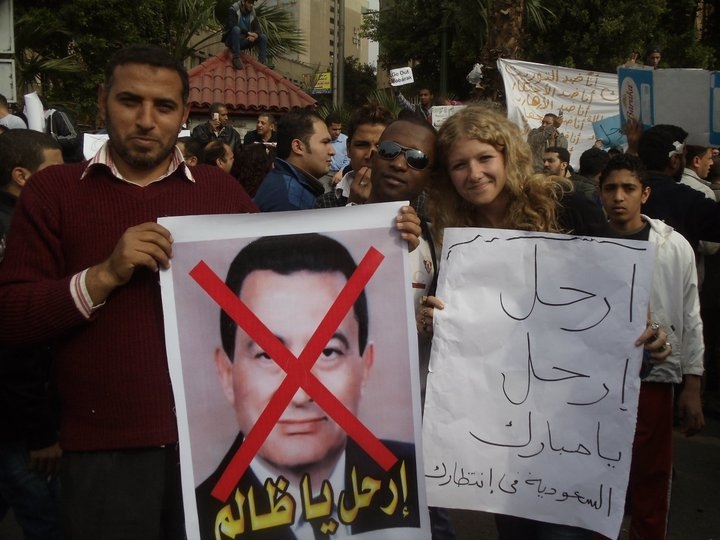

Following political unrest in Egypt, three SUNY New Paltz students were evacuated from the American University of Cairo (AUC) just two weeks into their studies overseas.
According to Carlton Rounds, assistant director of the Center for International Programs (CIP) at SUNY New Paltz, each student was safely transported from Cairo after tensions began to mount in the region and an emergency evacuation was declared in early February.
“We thought we were going to have more time and we were going to wait and see, but the situation went from being fairly sort of mild to ‘all Americans go to the airport right now,’” Rounds said. “Thankfully, we have an incredibly sophisticated emergency and evacuations procedures plan at New Paltz.”
Rounds said constant communication was maintained with students through e-mail, landlines and other methods provided by AUC during the emergency period.
Because SUNY New Paltz has a long-standing partnership with AUC, Rounds said there was little difficulty in planning the evacuation with each student even while Egypt’s Internet became an unreliable method of exchange.
“Whenever you have a study abroad program, it’s your foreign partner that’s really crucial to the safety,” Rounds said. “The [AUC] is a very sophisticated, very well resourced and a very safe school, so they were really on top of it before anybody.”
However, not all three students returned to New Paltz after evacuating Egypt.
When third-year senior and double major in international relations and Women’s Studies Ashley Drzymala was told Wednesday, Feb. 2 that she had to be on a plane out of Cairo the following day, she said she felt like she was being torn from an important moment in history.
“I wanted to stay there with every inch of my body,” Drzymala said. “I decided to study in Ifrane, Morocco immediately after because I am interested in what’s happening in the region and secretly hoping something similar will begin here.”
Siding with protestors in the removal of Hosni Mubarak from his presidential seat, Drzymala said she only became truly concerned for her safety when she was around pro-Mubarak protestors.
Even during such a brief stay, Drzymala said she became emotionally invested and attached to those protesting for democracy and wishes she could have stayed in the country during such an “eye-opening and inspiring experience.”
“The passion Egyptians have for their country and their people is unlike anything I have ever seen before,” she said. “All of the people came together to help each other, to lend each other money when the banks were closed, to cook for each other when the stores were closed…it was honestly the most amazing experience of my life and I’m so grateful I was a part of it.”
Rounds said work was done to help students returning to SUNY New Paltz register for classes for the spring semester and transportation costs were covered by emergency evacuation insurance.
But if a student chose to continue studying abroad in a different country like Drzymala did, Rounds said adjustments were made to cover the costs for the new program.
“Quite frankly this doesn’t happen very often, so some of this is a little bit uncharted territory,” Rounds said. “What we do is work to make sure that there’s as little stress and financial loss to the student because it’s not their fault that the country had a revolution.”
In Interim President Donald Christian’s February report to the faculty, the efforts of groups and individuals on campus were praised for helping to support not only the three students who were evacuated from Egypt, but the seven students from Egypt studying abroad at SUNY New Paltz.
Christian also said he applauded the efforts of the staff working to help students studying abroad.
“The Center for International Programs has done a marvelous job working with our students both here and in Egypt and with their parents,” Christian said. “A number of faculty and department chairs have been wonderfully cooperative in arranging academic schedules for the students whose studies at [AUC] were interrupted by the unrest in Egypt.”
With Mubarak officially stepping down on Friday, Feb. 11, allowing for some of Egypt’s political unrest to begin a steady decline, Rounds said it is still too early and difficult to tell whether the CIP will begin sending students back to Cairo by
next semester.
Although SUNY New Paltz still maintains a great relationship with the AUC, Rounds said the CIP’s primary concern will always be the well-being of the students studying abroad.
“I’d rather have students home and safe and then we can try to work getting them into another program or maybe go back to [AUC] in the future when things calm down,” Rounds said. “Until we can verify that everything is going to be predictable and more placid and safe, we’re not going to send any students.”
